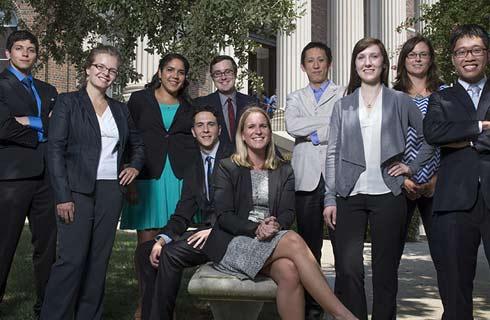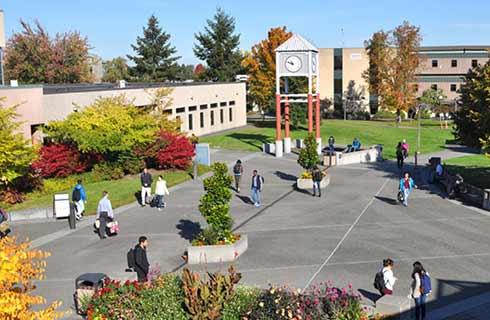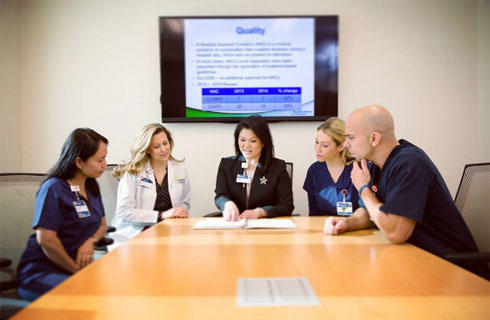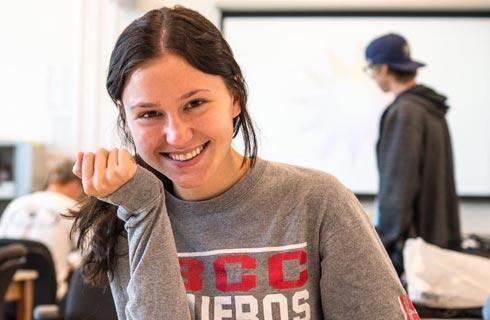物理学哲学博士
Doctor of Philosophy in Physics

学历文凭
Ph.D.

专业院系
Eberly College of Science

开学时间

课程时长

课程学费

国际学生入学条件
A bachelor's degree in physics or an allied field is required for admission to the M.S., and Ph.D. programs. Students with a 2.50 or higher junior/senior grade-point average (on a 4.00 scale) in physics and mathematics will be considered, and the best-qualified applicants will be accepted up to the number of spaces that are available for new students. Exceptions to the minimum 2.50 GPA may be made for students with special backgrounds, abilities, and interests. Exceptions may also be made for applicants for doctoral programs who have completed master's degrees at other institutions.
English Proficiency: TOEFL Internet-based test (iBT) - a total score of 80 with a 19 on the speaking section for the internet-based test (iBT); TOEFL Paper-based test - the minimum acceptable score is 550; IELTS - The minimum acceptable composite score for the IELTS Academic Test is 6.5.
IDP—雅思考试联合主办方

雅思考试总分
6.5
- 雅思总分:6.5
- 托福网考总分:80
- 托福笔试总分:550
- 其他语言考试:NA
CRICOS代码:
申请截止日期: 请与IDP联系 以获取详细信息。
课程简介
A graduate physics education should stimulate intellectual excitement and instill the knowledge, skills, confidence, independence, and versatility needed for a successful career in either the sciences or other quantitative or technical fields. Essential to this goal is a talented, enthusiastic, and imaginative faculty committed to the professional development of graduate students. We have such a faculty here at Penn State. <br><br>Please peruse the entire Penn State Physics website to gain a glimpse of the intellectual and physical environment in which you could be pursuing your studies. If you are interested, we cordially invite you to visit with us at University Park Campus.<br>Graduates shall demonstrate advanced knowledge and understanding in physics core knowledge (statistical mechanics, theoretical mechanics, classical electrodynamics, and quantum physics) and experimental, observational, and theoretical methodologies, that underpin the practice of modern physics.<br> <br>Graduates shall demonstrate, at a level appropriate to a departmental colloquium, (i) knowledge of several outstanding problems or questions in diverse sub-fields of physics, (ii) the experimental, observational, or theoretical origins of these problems, and (iii) the principal efforts proposed or underway to address them. <br> <br>Graduates shall demonstrate the ability to communicate professionally, in written and oral form, research work and conclusions to physics sub-field expert and non-expert audiences. <br> <br>Graduates shall demonstrate (i) knowledge and understanding of professional standards of ethics and conduct, (ii) the ability to analyze situations to identify the standards that should apply and (iii) describe how they may be appropriately acted upon.<br> <br>Graduates shall have a specialty area within the broad domain of physics, within which they shall demonstrate (i) advanced knowledge and understanding of the primary literature, (ii) the ability to analyze and judge new contributions to the primary literature, (iii) the ability to pose complex research problem(s) and identify the knowledge and methodologies required to address them, and (iv) the ability to apply that knowledge and those methodologies to create new knowledge andor develop new experimental techniques that advance (or show the potential to advance) knowledge and understanding within the specialty area.
相关申请
 预科
预科 奖学金
奖学金 实习机会
实习机会 在校学习
在校学习 跨境学习
跨境学习 校园授课-线上开始
校园授课-线上开始 在线/远程学习
在线/远程学习
开学时间&学费
学费信息仅供参考,请与IDP联系以获取详细信息
| 开学时间 | 时长 | 学费 | 地点 |
|---|
学校排名

世界排名78
数据源:
泰晤士高等教育世界大学排名
关于宾州州立大学帕克分校

每122位本科毕业的美国人中就有1个是PSU的校友1855年建校的宾州州立大学目前已经有了24个校区,University Park是其中的旗舰校区,也是规模最大的校区,容纳学生45000余人。距离宾州州府Harrisburg仅仅17英里的地理位置优势让University Park成为最受欢迎的PSU校区,同时也成为了录取率最低的校区。Party School的称号在PSU身上由来已久,但同时,每年专程跑到PSU校内面试应届毕业生的公司和政府部门超过1000个,这里的学术水准绝对不是盖的。美国每50个工程师中,就有1人是PSU的毕业生PSU的理工课尤其是工程学专业非常知名。实际上从1988年开始,PSU从工业界拿到的学术研究资金总额一直排名美国所有大学的前两位,仅次于麻省理工。很多工业界企业干脆直接将产品研发放在PSU进行。另外,地球与矿产科学学院在美国同类学院中排名第6,其中的地理专业全美第一,地质专业全美第三,均属世界一流学科项目。理论性大众传媒专业同样排名全美第一,与哥伦比亚大学的应用型大众传媒并驾齐驱。 Penn State-University Park的申请竞争相当激烈。申请材料中主观性的PS与简历部分属于非要求项。实际上,每年,单纯从成绩角度做出的录取决定占总录取人数的2/3。所以,想去PSU,得先保证有一个靠谱的标准化成绩。
本校相关课程
其他相关课程

物理学哲学博士-量子信息
 滑铁卢大学
滑铁卢大学学历文凭
Ph.D.
开学日期
课程费用总额

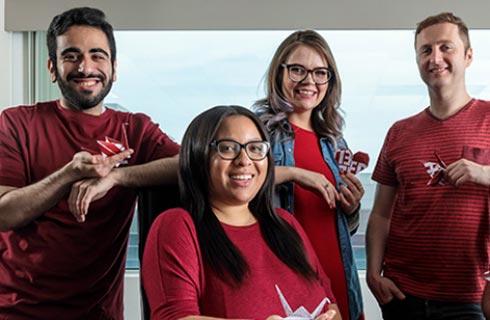
物理学理学硕士-量子信息
 滑铁卢大学
滑铁卢大学学历文凭
Masters Degree
开学日期
课程费用总额

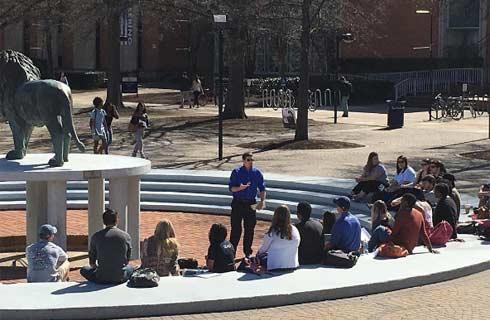
物理学哲学博士
 滑铁卢大学
滑铁卢大学学历文凭
Ph.D.
开学日期
课程费用总额

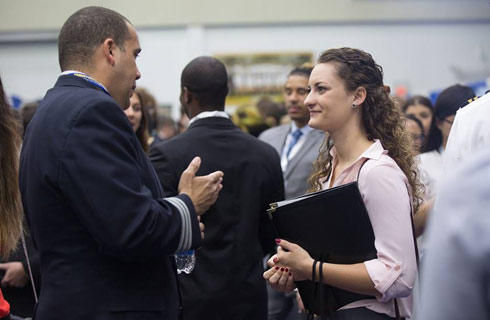
物理学理学硕士
 滑铁卢大学
滑铁卢大学学历文凭
Masters Degree
开学日期
课程费用总额


物理学理学士(荣誉学位)
 滑铁卢大学
滑铁卢大学学历文凭
Bachelor Degree with Honours
开学日期
课程费用总额

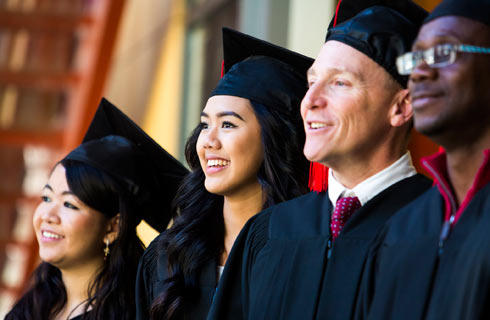
物理学理学硕士
 劳伦森大学
劳伦森大学学历文凭
Masters Degree
开学日期
课程费用总额










 美国
美国
